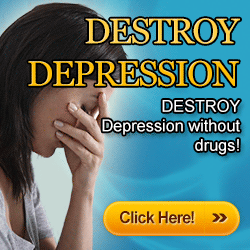Depression is a complex and debilitating mental health condition that affects millions of individuals worldwide, impacting their mood, thoughts, and overall quality of life. While traditional treatments such as therapy and medication are widely used, emerging research suggests that nutrition plays a pivotal role in the management and prevention of depression. In this article, we delve into the intricate relationship between depression and nutrition, exploring how dietary choices can influence mental health outcomes and offering practical strategies for incorporating nutrient-rich foods into daily life.
The connection between depression and nutrition is multifaceted, with growing evidence highlighting the impact of dietary patterns on mood, cognition, and emotional well-being. Research indicates that certain nutrients, such as omega-3 fatty acids, antioxidants, B vitamins, and amino acids, play key roles in brain function and neurotransmitter regulation, which are central to the development and progression of depression. Conversely, deficiencies in these nutrients have been associated with an increased risk of depressive symptoms and mood disorders.
One of the most well-studied dietary factors in relation to depression is the consumption of omega-3 fatty acids, commonly found in fatty fish, flaxseeds, chia seeds, and walnuts. Omega-3s are essential for brain health and have been shown to possess anti-inflammatory and neuroprotective properties, which may help alleviate symptoms of depression and improve mood stability. Several studies have found that individuals with higher levels of omega-3 fatty acids in their diet are less likely to experience depressive symptoms, suggesting a protective effect against mood disorders.
Similarly, antioxidants—found abundantly in fruits, vegetables, nuts, and legumes—play a critical role in combating oxidative stress and inflammation, both of which are implicated in the pathophysiology of depression. By neutralizing harmful free radicals and supporting cellular repair mechanisms, antioxidants help preserve the integrity of brain cells and promote optimal cognitive function. Incorporating a diverse array of colorful, plant-based foods into one’s diet can provide a rich source of antioxidants, bolstering mental resilience and reducing the risk of depression.
Furthermore, B vitamins—such as folate, vitamin B6, and vitamin B12—are essential for the synthesis of neurotransmitters involved in mood regulation, including serotonin, dopamine, and norepinephrine. Low levels of these vitamins have been linked to depressive symptoms and cognitive decline, highlighting the importance of adequate intake through dietary sources such as leafy greens, whole grains, eggs, poultry, and fortified cereals. For individuals at risk of nutrient deficiencies or those with specific dietary restrictions, supplementation under the guidance of a healthcare professional may be warranted to ensure optimal mental health outcomes.
In addition to individual nutrients, dietary patterns such as the Mediterranean diet and the DASH (Dietary Approaches to Stop Hypertension) diet have been associated with a lower risk of depression and improved mental well-being. These dietary patterns emphasize whole, minimally processed foods such as fruits, vegetables, whole grains, lean proteins, nuts, seeds, and healthy fats, while limiting intake of refined sugars, saturated fats, and processed foods. By prioritizing nutrient-dense foods and minimizing exposure to pro-inflammatory substances, these dietary approaches support brain health and foster resilience against depressive symptoms.
Conversely, diets high in processed foods, sugary beverages, and trans fats have been linked to an increased risk of depression and poor mental health outcomes. These dietary patterns promote systemic inflammation, oxidative stress, and dysregulation of neurotransmitter pathways, all of which contribute to the development and exacerbation of depressive symptoms. Additionally, excessive consumption of refined carbohydrates can lead to fluctuations in blood sugar levels, causing mood swings, fatigue, and irritability—further exacerbating the symptoms of depression.
In conclusion, the link between depression and nutrition underscores the importance of adopting a holistic approach to mental health care that includes attention to dietary habits and nutritional status. By prioritizing nutrient-rich foods that support brain function and emotional well-being, individuals can empower themselves to manage and prevent depression effectively. Whether it’s incorporating omega-3-rich foods into meals, filling half your plate with colorful fruits and vegetables, or swapping processed snacks for wholesome alternatives, small changes in dietary choices can yield significant improvements in mental health outcomes. As Hippocrates famously said, “Let food be thy medicine and medicine be thy food”—a philosophy that holds true in the context of depression and nutritional therapy.



